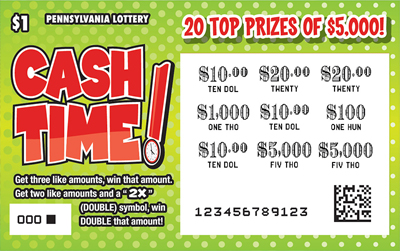Jun 28, 2019 - Explore Misty Merrill's board 'Probability Games', followed by 274 people on Pinterest. See more ideas about Diy games, Festival games, Fall carnival. Types of games of chance online Craps. Craps is one of the most popular dice events in the world. Millions of people play craps – on the streets, with. Roulette is a superb title that mainly involves luck. You can increase the odds in your favor, but the roll of.

One of the origins of of probability as a field in mathematics was solving games of chance. The famous correspondence between Fermat and Pascal in 1654 was one of the earliest accounts on how to use mathematics formally in order to solve a fair game of chance.
In this post, we are going to design a game that will demonstrate the power of probability. We will use probability to create a game that looks like as if it favors the player, while in reality, it favors the casino. Are online casinos legit. Although most casino games actually obviously favor the casino, the game below is a bit more conservative (or should I say ‘deceptive.')

One of the origins of of probability as a field in mathematics was solving games of chance. The famous correspondence between Fermat and Pascal in 1654 was one of the earliest accounts on how to use mathematics formally in order to solve a fair game of chance.
In this post, we are going to design a game that will demonstrate the power of probability. We will use probability to create a game that looks like as if it favors the player, while in reality, it favors the casino. Are online casinos legit. Although most casino games actually obviously favor the casino, the game below is a bit more conservative (or should I say ‘deceptive.')
The dice to be used in the game below is the standard 6-sided die whose number of dots are from 1 to 6. This means that the smallest possible sum is 1 + 1 = 2 and the largest possible sum is 6 + 6 = 12. Below are the instructions on how to play the game. Las vegas usa casino online.
The Die Rolling Game
- Roll the two dice.
- Add the number of dots.
- If the sums are 2, 3, 4, 10, 11, 12, then the player wins. If the sums are 5, 6, 7, 8, 9, then the casino wins.
Looking at the game above, it seems that the game favors the player. As we can see, there are six possible sums that will make the player win: 2, 3, 4, 10, 11 and 12. On the other hand, there are only five possible sums that will make the casino win: 5, 6, 7, 8, and 9. If a player who has no mathematical background will be given a chance to choose between the two sets of numbers above, they will probably choose the one with the six possible sums.
The Casino Will Win
In reality, the casino will actually win using the game designed above if numerous games will be played. We can see this if we enumerate all the possible sums in a table. Suppose the color of the two dice are red and blue, then we can create a table that will display all the possible sums as shown below.
From the table, we can see that that there are 36 sums. As mentioned above, the lowest sum is 2 and the largest sum is 12. We can also see that although the sum contains numbers which are the same, they are all results of 2 distinct pair of dice. For example, although there are six 7's (green cells), each of them are results of distinct addends. For instance, the sum 6 + 1 is different from the sum 6 + 1 .
From the table above, if we count the sums 2, 3, 4, there are only six of them. This is also the same with 10, 11, and 12. Therefore, there are only 12 possible sums that will make the player win. However, since there are 36 possible sums, 36-12 = 24 sums will make the casino win. This means that the probability of the player winning is while the probability of the casino winning is . From this calculation, the casino has actually two wins for every three games played.
We have seen above the power of probability on how to assure game results. Despite the dice is fair (unloaded), as the number of games increases, the casino will eventually actually win.
Printer-friendly versionMany nonprofits use games of chance and auctions as fundraising vehicles – without realizing that 'legalized games of chance' are regulated activities, and indeed illegal in many states. So that poker night or silent auction that created such a buzz…make sure that the buzz is not the vibration of your cell phone letting you know that your nonprofit is being cited for criminal penalties. Even an auctions that is raising money for a charitable cause, can result in unintended consequences for donors and charitable nonprofits alike, unless you know and follow the rules. From fantasy leagues to casino nights, nonprofits and games of chance are a misunderstood minefield. Arrow roulette game.
Know the rules
Your state may, or may not, permit charitable nonprofits to conduct raffles, Bingo, auctions, and other games of chance. If it does, it is likely your nonprofit will need to apply for a license from the state beforehand. The IRS regulates games of chance too, as well as the taxable income that is earned by victorious game-players. Here are some of the issues that games of chance raise for charitable nonprofits:
- Income from games of chance may be considered unrelated business income and therefore the charitable nonprofit may owe tax on the income, and winners may owe tax that the nonprofit is required to withhold.
- The IRS has special rules for bingo.
- Read the IRS notice about reporting requirements and income withholding for raffle prizes
- In some states, proceeds from games of chance have to be kept in a special bank account (e.g., Pennsylvania).
- Games of chance might trigger the requirement to conduct criminal background checks on the CEO or other staff of the nonprofit that is hosting the games.
- State or federal law may require the nonprofit to maintain special records and file certain reports about the games/winners.
- The nonprofit may be subject to gaming excise taxes (described in IRS Publication 3079).
- A nonprofit hosting an event such as a charity casino night, where alcohol is served, may need a separate alcohol license.
- How the nonprofit uses net proceeds from games of chance may be limited in some way. For example, in North Carolina the law states: 'None of the net proceeds of the raffle may be used to pay any person to conduct the raffle, or to rent a building where the tickets are received or sold or the drawing is conducted.'
What can donors deduct?
Surprise: Nothing! Donors who are successful bidders at an auction or winners at a game of chance, often think that the money they spent in pursuit of their winnings is deductible just because the event is hosted by a charitable nonprofit, or the earnings are advertised as supporting a charitable cause. In fact, the winners of games of chance are not able to deduct what they spent to play the game, or bid at the auction.
Random Chance Games
- Auction donors may be surprised to learn – after the fact – that their 'contributions' are not deductible. The reason is that in a silent or live auction their contribution is actually a payment for donated goods or a donated experience such as an all-expenses paid trip to Bermuda. Consequently, they did not provide the charity with a contribution in excess of the fair market value of what they received. Instead they engaged in a transaction to purchase an experience or goods. In the case of other types of games of chance, the person who plays the game is expecting (hoping) to win something in return, so the money exchanged is considered just like a purchase or sale of goods, rather than a voluntary gift to the charitable nonprofit with no expectation of receiving anything tangible in return.
List Of Games Of Chance
Resources
Game Of Chance Examples
- Tax-Exempt Organizations and Gaming (IRS Publication 3079)
- Exempt organizations and raffle prizes (IRS)
- IRS Phone Forum transcript: Federal tax and and information return responsibilities for tax-exempt organizations that conduct gaming (IRS)
- Special IRS Gambling Rules for Nonprofits (Nolo)
- Is your nonprofit overpromising tax-deductions? (Nolo)
- Gambling with your nonprofit (Charity Lawyer)
- Your state association of nonprofits can provide guidance on what is permitted in your state, e.g. this guidance from the Minnesota Council of Nonprofits.

